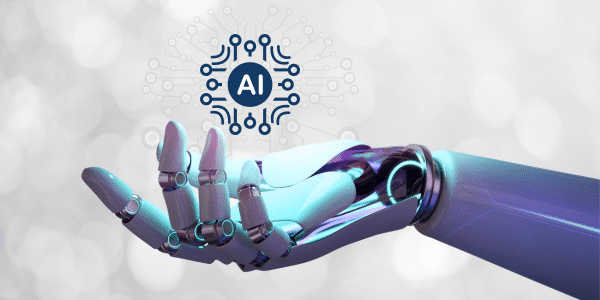
Navigating the Future: How Event Organizers Can Harness AI to Save Time and Money
As the event industry continues to evolve, artificial intelligence (AI) is emerging as a powerful tool that can help event organizers streamline their processes, enhance attendee experiences, and ultimately save time and money. Whether you’re planning a small corporate gathering or a large-scale music festival, integrating AI into your event production strategy can offer significant advantages. This blog post will explore how leveraging AI can transform the event planning process and highlight key tools that organizers should consider to maximize efficiency and cost-effectiveness.
How AI Can Save Event Organizers Time and Money
1. Automating Administrative Tasks:
One of the most immediate benefits of AI is its ability to automate routine administrative tasks. From scheduling meetings to managing attendee registrations, AI-powered tools can handle these tasks with minimal human intervention. This not only frees up time for organizers to focus on more strategic aspects of the event but also reduces the likelihood of errors that could lead to costly issues down the line.
2. Enhanced Attendee Experience through Personalization:
AI can analyze attendee data to provide personalized recommendations, such as suggesting sessions, networking opportunities, or even meals based on individual preferences. Personalization can improve attendee satisfaction and engagement, leading to better reviews and repeat attendance, which is crucial for the long-term success of events. This means collecting data in a way that can be analyzed and provide valuable insights, for example, a post-event survey asking to rate their experience 1 – 10. Tools like Chat GPT make it easy to upload spreadsheets to retrieve valuable insights.
3. Efficient Resource Management:
AI can optimize resource allocation by analyzing data from previous events to predict the number of staff, food, and materials needed. This helps prevent over-ordering or under-staffing, both of which can lead to unnecessary expenses. Additionally, AI can assist in real-time adjustments during the event, ensuring that resources are deployed where they are needed most.
4. Predictive Analytics for Better Decision Making:
AI-driven predictive analytics can provide valuable insights into various aspects of event planning, such as attendee turnout, budget forecasting, and potential risks. By leveraging these insights, organizers can make informed decisions that help avoid costly mistakes and improve the overall efficiency of the event.
5. Streamlined Marketing Efforts:
AI tools can automate and optimize marketing campaigns by analyzing data to identify the most effective channels, messaging, and timing. This allows organizers to reach their target audience more effectively and at a lower cost. AI can also manage social media interactions, respond to inquiries, and even generate content, further reducing the workload for event organizers.
AI Tools Every Event Organizer Should Consider

1. CRM and Event Management Platforms:
AI-powered CRM and event management platforms, like HubSpot, can automate attendee management, track interactions, and provide insights into attendee behavior. These tools help organizers manage registrations, send automated follow-ups, and analyze attendee data to improve future events.
2. Chatbots and Virtual Assistants:
AI-driven chatbots, such as Drift or Intercom, can handle attendee inquiries in real-time, providing instant support and information. Virtual assistants can also assist in managing schedules, sending reminders, and coordinating tasks among team members, ensuring that everything runs smoothly.
3. Predictive Analytics Tools:
Tools like Chat GPT, IBM Watson or Salesforce Einstein can analyze historical data and predict trends, helping organizers make informed decisions about everything from budgeting to marketing strategies. These tools can also identify potential risks and suggest mitigation strategies, reducing the likelihood of costly surprises.
4. Personalization Engines:
AI-powered personalization tools like chat GPT, Dynamic Yield, or Optimizely can analyze attendee data and deliver personalized content, recommendations, and experiences. These tools help create a more engaging event experience, leading to higher attendee satisfaction and loyalty.
5. Marketing Automation Platforms:
Platforms like Capterra or Mailchimp use AI to optimize email campaigns, social media marketing, and digital advertising. By automating these tasks, event organizers can reach their audience more effectively while reducing the time and resources required for manual marketing efforts.
6. AI-Driven Content Creation Tools:
Tools like Chat GPT, Jasper, or Copy.ai can generate content for marketing materials, social media posts, and event programs. By automating content creation, organizers can reduce the time and effort required to produce high-quality materials, allowing them to focus on other critical aspects of event planning.
Conclusion
The integration of AI into event production is not just a trend; it’s a transformative shift that can significantly enhance the efficiency, cost-effectiveness, and overall success of events. By automating routine tasks, optimizing resource allocation, and providing valuable insights, AI empowers event organizers to focus on what truly matters: creating memorable experiences for their attendees. As the event industry continues to embrace digital transformation, those who leverage AI will be better positioned to navigate the challenges of today’s fast-paced environment and deliver exceptional events that stand out in an increasingly competitive market.
Event organizers looking to stay ahead of the curve should explore the AI tools mentioned above and consider how they can be integrated into their event planning processes. By doing so, they can unlock new levels of efficiency, save time and money, and ultimately, deliver events that leave a lasting impact.
As always if you are looking for some great events to attend you check out our featured events HERE.
Other Articles
Creating Events with Accessibility In Mind








